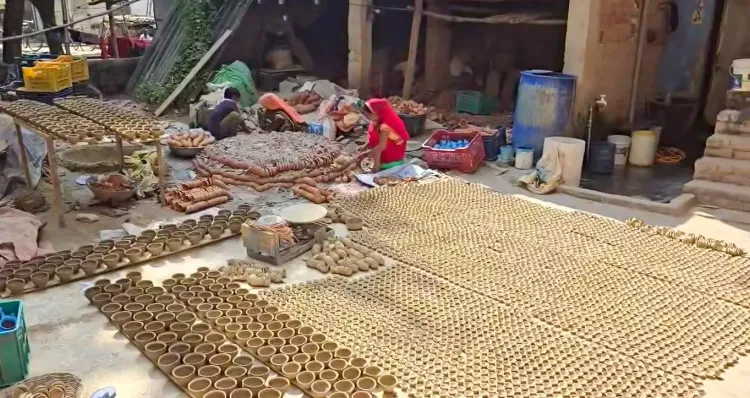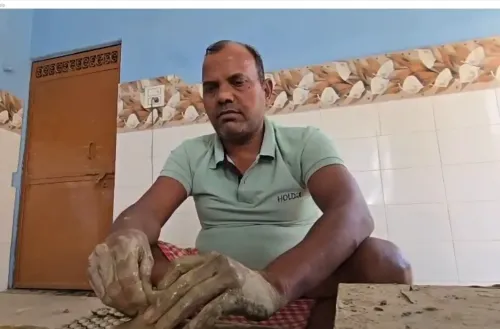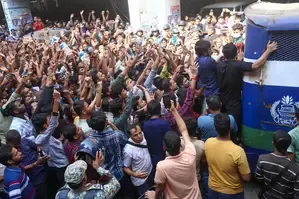How Have ‘Adopt Swadeshi’ and ‘Make in India’ Brightened Diwali for Varanasi’s Potters?

Synopsis
Key Takeaways
- Adopt Swadeshi and Make in India are revitalizing local industries.
- Demand for traditional clay lamps is significantly increasing.
- Potters are witnessing a 40% business growth this Diwali.
- Community support is crucial for sustaining traditional crafts.
- Diwali is a festival that emphasizes the triumph of light and good.
Varanasi, Oct 16 (NationPress) The slogans “Adopt Swadeshi” and “Make in India” have brought joy to the potters of Varanasi this Diwali. With a notable decline in the demand for Chinese decorative items, the uptick in sales of traditional clay lamps has significantly boosted their businesses.
As the festival of lights draws near, preparations are in full swing nationwide. In the sacred city of Varanasi, the warmth of traditional clay lamps illuminates every street. In the village of Suddhipur alone, approximately 2,500 potters are laboring tirelessly, day and night, to satisfy the growing demand. These artisans, who once grappled with economic difficulties, are now filled with renewed optimism and happiness.
Sunil Kumar, a potter, expressed to IANS, “I’ve been doing this for 30–35 years. The demand is so high that nothing is left. People are no longer buying Chinese products. Now, they are choosing clay diyas.”
Dinesh Prajapati, another potter, shared, “I’ve been working here for 50 years. There’s been a major shift in buying patterns. Demand keeps increasing. We spend five to six hours a day making these items. We’re now creating many different types of diyas.”
This year, the demand for traditional lamps has surged to such an extent that potters in various regions are struggling to keep pace with orders. Local artisans report that their business has increased by nearly 40 percent compared to previous years.
For potters who have faced hardships for years, this Diwali brings a refreshing wave of hope. There is now a pressing need for further promotion of campaigns like “Adopt Local Products” to assist this timeless craft in regaining its lost prominence.
Diwali, also known as Deepavali, is a Hindu festival of lights celebrated by the Jain and Sikh communities as well. It symbolizes the spiritual victory of Dharma over Adharma, light over darkness, good over evil, and knowledge over ignorance. This year, in 2025, Diwali will fall on Monday, October 20, according to the Hindu lunar calendar, marking the 15th day of Kartik, the darkest night of the year.









